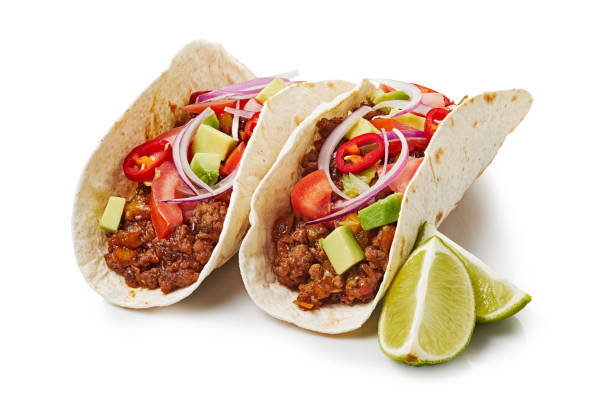Tacos, originating from Mexico, have transcended borders to become a global culinary sensation celebrated for their versatility, vibrant flavors, and cultural significance. This handheld delight typically consists of a tortilla filled with a variety of ingredients, ranging from savory meats and vegetables to zesty salsas and creamy toppings. Beyond their gastronomic appeal, tacos offer a spectrum of nutritional benefits derived from their diverse components and balanced combinations, making them a wholesome and satisfying meal choice for food enthusiasts of all ages.

One of the key nutritional components of tacos is their protein content, which varies depending on the choice of filling. Tacos made with lean protein sources such as grilled chicken, fish, shrimp, or beans offer high-quality protein, providing all nine essential amino acids necessary for muscle repair and growth, immune function, and hormone production. Including protein-rich foods like these in one’s diet supports satiety, promotes muscle health, and aids in weight management. Additionally, protein helps regulate blood sugar levels and provides sustained energy throughout the day.

Moreover, tacos are often filled with a variety of vegetables, such as lettuce, tomatoes, onions, bell peppers, and avocado, which add essential vitamins, minerals, and dietary fiber to the dish. Vegetables provide vitamins such as vitamin C, vitamin A, and vitamin K, as well as minerals like potassium and magnesium. These nutrients support overall health and well-being, contributing to immune function, bone health, and metabolism. Dietary fiber aids in digestion, promotes regular bowel movements, and helps regulate blood sugar levels. Including fiber-rich vegetables in tacos supports gut health and may reduce the risk of digestive disorders such as constipation and diverticulitis.

Additionally, tacos can be served with whole grain or corn tortillas, which provide complex carbohydrates, fiber, and additional nutrients compared to refined flour tortillas. Whole grains are associated with numerous health benefits, including improved digestion, reduced risk of chronic diseases such as heart disease and diabetes, and enhanced satiety. Choosing whole grain or corn tortillas adds more fiber and nutrients to the dish, supporting overall health and well-being.

Furthermore, tacos are often seasoned with a variety of herbs and spices, such as cumin, chili powder, garlic, and cilantro, which not only add depth of flavor but also offer potential health benefits. Ingredients like garlic contain bioactive compounds with antioxidant, anti-inflammatory, and antimicrobial properties. These compounds help reduce oxidative stress in the body, combat inflammation, and may lower the risk of chronic diseases such as heart disease, cancer, and diabetes. Herbs and spices also enhance the flavor profile of tacos, making them a delicious and satisfying meal option.

In conclusion, tacos offer a flavorful and nutritious dish that celebrates the culinary diversity of Mexican cuisine. With their combination of protein, vegetables, whole grains, and herbs and spices, tacos provide essential nutrients that support overall health and well-being. By including nutrient-rich ingredients, choosing whole grain or corn tortillas, and minimizing added sugars and sodium, tacos can be enjoyed as part of a balanced diet, providing both flavor and nutrition to meals.




